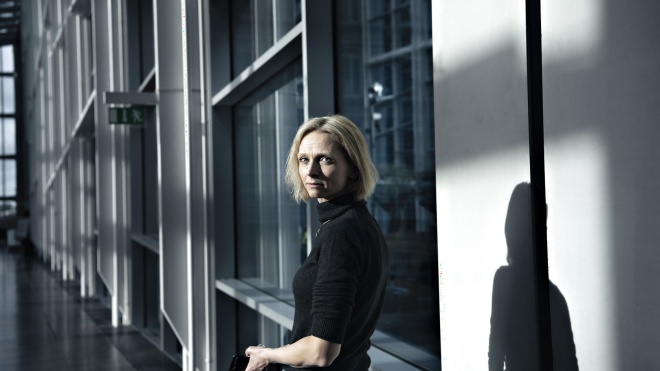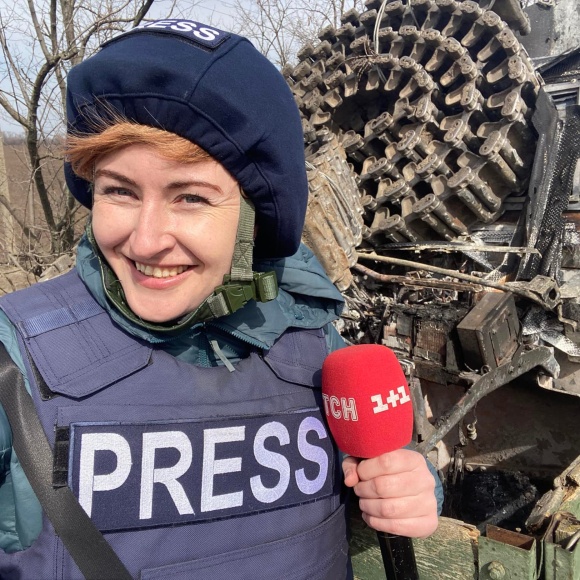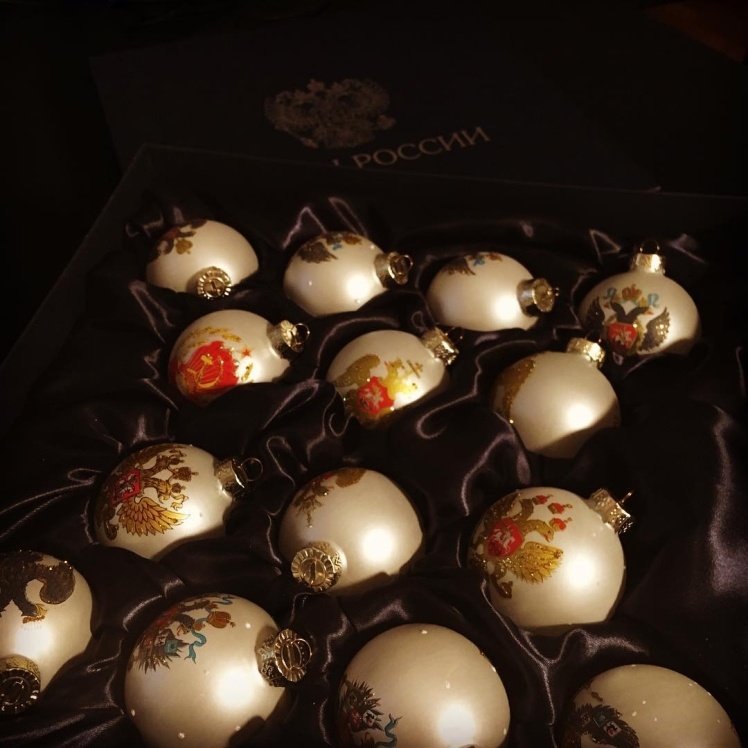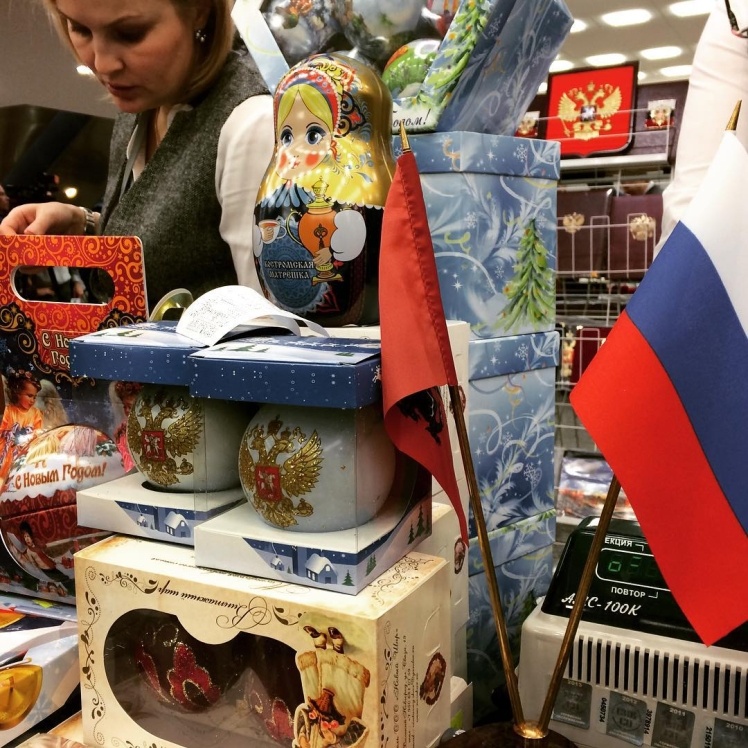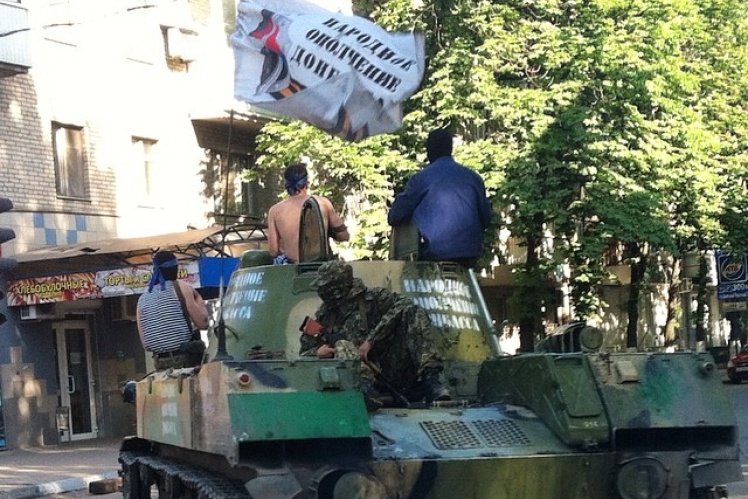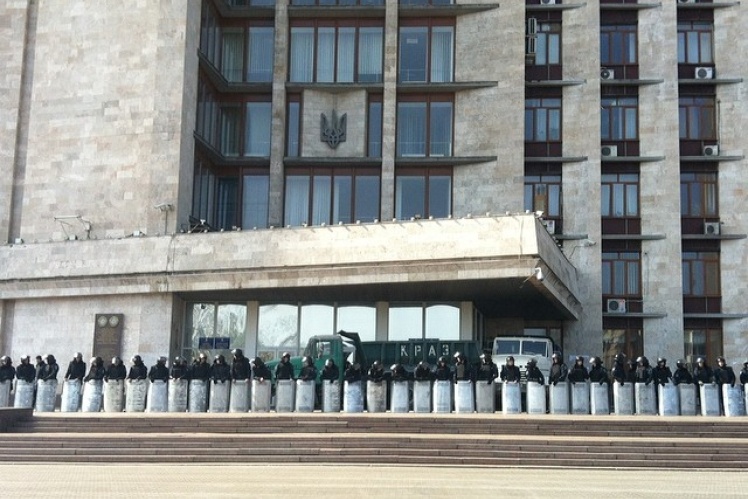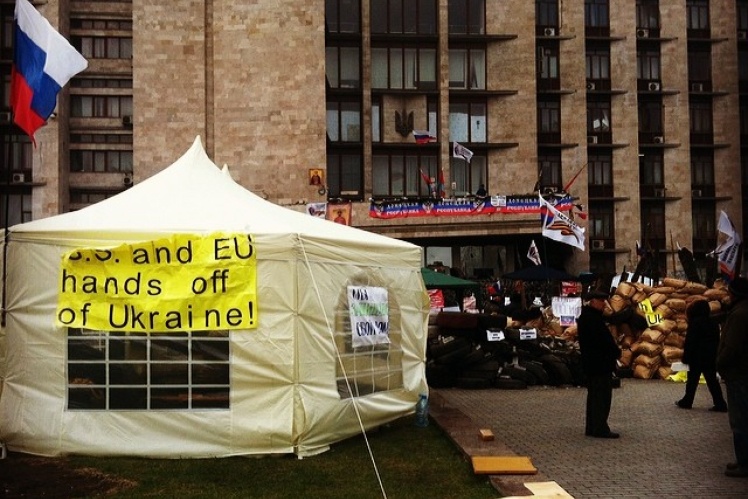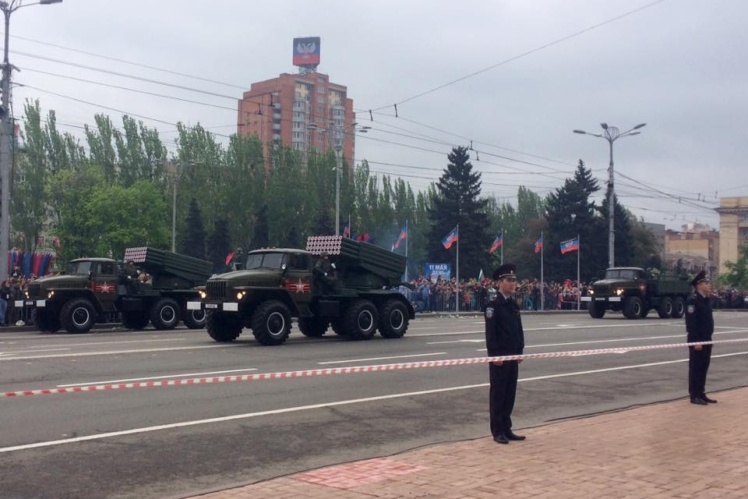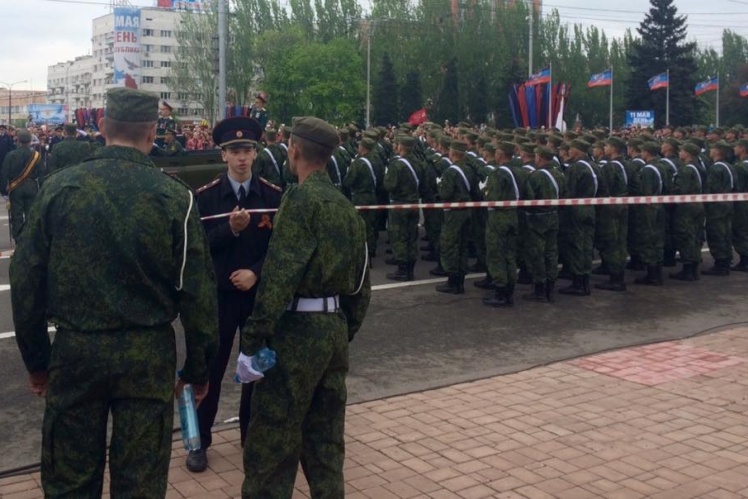The SBU told us that your accreditation was canceled because you went to film combat positions of the Armed Forces of Ukraine in the Mykolaiv region without permission. Can you describe what happened in detail?
At the beginning of July or at the end of June, I decided to go to the Mykolaiv region to make some stories. All the fixers with whom I usually worked in Ukraine turned out to be busy, so my friend Ivan [Kravtsov] agreed to go with me. Previously, he already worked with foreign journalists as a fixer — it seems, in March 2022.
We went by car. Along the way, it turned out that Ivan had forgotten to get a special permit to work in the Mykolayiv region. We stopped and applied to the [Military-Civil Administration] for these permits. Ivan said that he had already communicated with people from the local administrations, and the documents would be prepared without any problems. We arrived in Mykolaiv late in the evening. Meanwhile, we were talking about the new weapons that the partners were to provide to Ukraine. At that time, there were no HIMARS in Ukraine yet, and it was felt. I was in Lysychansk, Sievierodonetsk — and there [due to the lack of modern weapons in the Ukrainian Armed Forces] it was terrible. I knew that the French film crew was allowed to film the work of the French artillery installations. And she also knew that Denmark provided Ukraine with anti-ship weapons. I understood: in order to shoot at least something related to weapons, we have to wait for permission.
Nataliia Nahorna.
1plus1.ua / «Бабель»
The next day, we met Nataliia Nahorna, a journalist from the 1+1 TV channel. It was Ivan who was talking to her, and I at that time was probably talking to my editors at DR, I wasnʼt part of their conversation. Ivan told me that Nataliia made a story about a farmer 80 percent of whose crop was burned [by the Russian attacks] and he went basically bankrupt. In Denmark, people were interested in how Ukrainian farmers lived during the war, because at that time there was still no "grain agreement". Ivan said that Nataliia gave him the farmerʼs contacts, and the farmer didnʼt mind talking to us.
Here is the point where the situation becomes idiotic. Ivan didnʼt say that this farmerʼs fields are behind a military checkpoint that we cannot pass through without permits. He only said that he had contacted the farmer and that he was waiting for us.
And you went without permission?
Ivan said that our permits are almost ready — the documents have not been sent, but, in fact, everything should be in order. He said he had spoken to someone from the local authority about it.
We met the farmer and drove together in the direction of his burned fields. On the way, we stopped at a checklpoint, we didnʼt film anything there. We handed over our documents to the military, but they didnʼt let us go further, but asked us to leave the territory of the Mykolayiv region, accompanied by a representative of the SBU.
Ammunition lies in a field at a former Russian artillery position on July 4, 2022, the Mykolaiv region, Ukraine. The Mykolaiv region became a symbol of resistance, as the Russian offensive was repulsed there.
Getty Images / «Babel'»
An employee of the SBU accompanied us first to Mykolaiv, and then to the nearest gas station on the way to Odesa. It was like in western movies: you are just thrown out of town. During this time, I called different people, including the Danish embassy, to help me resolve the situation.
How did you resolve the situation further?
When we were returning from Mykolaiv to Odesa, I called the press officer of the operational command South of the Armed Forces of Ukraine, Nataliia Humenyuk. She said she would check everything now. On the same day, she called back and said that they had spoken with the Danish embassy in Ukraine, as well as with one of the Ukrainian journalists who stood up for me. Therefore, I can return to the Mykolayiv region and continue working — only without Ivan. And that a press officer in Mykolaiv would take me to the position of artillery installations, she sent me his contacts.
I did just what she said. I was taken to the unit that was using Grad missiles. I filmed their work. And I was sure that everything was fine, but seven weeks later, on August 22, I received an e-mail informing me that my journalistic accreditation had been revoked.
dr.dk / «Бабель»
Why was Ivan so pushy?
I wouldnʼt say he was pushy, I think he just wanted us to be effective. Heʼs a very good man and Iʼm sure he wouldnʼt do anything to harm me or anyone [in that situation].
Later, Ivan found out that the situation at the checkpoint drew attention to my Instagram photos. It was a photo of Christmas tree balls. The press service of the Russian president usually sends strange gifts for the New Year. These balls were such a gift. I photographed them and posted them on Instagram. And captioned the photos something like this: "Who wouldnʼt want a Christmas ball from Putin?". Everyone in Denmark knows that this is sarcasm. None of the Danes would think I was literally saying that. And Ivan was told that this was the reason why we were detained and not allowed to work.
Photos of the Christmas balls. Literal translation of the caption: "This was just given to me as a gift. Christmas balls with the Russian coat of arms! Wonderful, arenʼt they? An award for a four-hour press conference." "No press conference without a souvenir shop. The truth is, do you really want New Yearʼs balls with the Russian coat of arms...?"
matildekimer / Instagram / «Бабель»
So you thought the conflict was over.
Yes, the cancellation of accreditation was a complete surprise. I immediately called Humenyuk and asked if it was because of an incident in the Mykolaiv region. She advised writing a request to the Security Service of Ukraine so that they would at least explain why the accreditation was revoked. She also said that the SBU should respond within 30 days. But the answer from them did not come even after three months of waiting.
I tried to get at least some information. I am not exaggerating — I called 500 times to various Ukrainian institutions, wrote to [SBU spokesman Artem] Dekhtyarenko on WhatsApp. But to no avail.
Comment from Babelʼs source in the SBU: No law authorizes the SBU to report the reasons for cancellation of accreditation in wartime conditions. The Ukrainian Armed Forces deprived the journalist of her accreditation because she violated the order #73 of the Commander-in-Chief of the Armed Forces of Ukraine. It says that a journalist can be admitted to secret facilities only with permission. She went without permission to the zone where foreign weapons are located. Its location is secret. The enemy is interested not only in technical characteristics, but also in the place of deployment. She came there to shoot a story without permission and endangered our soldiers.
On December 8, you, together with two representatives of the Danish Embassy and three representatives of the SBU, met to discuss why you were deprived of accreditation. Is this the only time you have met [with SBU representatives] about this situation?
Yes, our only contact is the meeting on December 8. It was held with the participation of the Danish Embassy in Ukraine. I was not told the names or positions of the SBU employees who were present. I know that one of them is called Oleh.
Comment from a source in the SBU: The ambassador of Denmark addressed us. He asked for a meeting with the journalist to consider returning her accreditation or at least explain why it was revoked. He said that she came to Kyiv just for this. The SBU told him that such meetings are outside the rules. This is our order. But given the good relations with Denmark, letʼs meet.
At the meeting, SBU representatives explained why they canceled the accreditation?
I would say, on the contrary. The meeting was a spray of accusations [from the Ukrainian side], and they were not specific. When I answered one thing, they immediately found another problem.
A source in the SBU: It was explained to her that the issue of accreditation is sensitive. Order 73 is written in the blood of our civilians and military. It appeared because journalists publicize the location of military equipment, and then missiles arrive there. Also, there is a taboo on access to the war zone [without proper permissions]. The journalist violated this taboo, so her accreditation was revoked.
Do you remember what exactly the SBU representatives appealed to during the meeting?
Oleh said that he saw photos from the occupied territories on my Facebook. He said that I had been to Donetsk many times. That in 2017 she published on social networks what the SBU considers Soviet propaganda.
We werenʼt looking at my Facebook page at that moment — we were just sitting at the table. In 2017, I made a 15-minute television story about the celebration of May 9 and the Sovietization of this so-called "peopleʼs republic". Because it was clear how they were pedaling the topic of nostalgia for the Soviet past. Showing this was the reason for me for going there. I also published photos of a tank with a St. George ribbon.
I asked Oleh how I can do journalism if Iʼm not allowed to show what is happening. Because, it seems, we have a different vision of what journalism is.
Matilde Kimer / Facebook / «Бабель»
Then Oleh asked why I was deleting information from my Facebook. I replied that I didnʼt delete anything: I donʼt publish almost anything there, why should I even delete it. I asked what, in his opinion, I deleted. He said he doesnʼt not want to go into details.
A source in the SBU: On her pages in social networks — Facebook and Instagram — there is open propaganda of quasi-state entities [occupied territories in the east of Ukraine]. She published photos with St. George ribbons, parades until May 9 in "DPR". Some of these posts have already disappeared — for example, photos from [Eduard] Basurinʼs press conference . Or posts about how one of the "DPR" enterprises with the "USSR" signboard is successfully working, or how beautifully New Yearʼs holidays are held in the "DPR". There is only one post left about the May 9, 2017 military equipment parade.
When you look at her Facebook, you can see how cool life is in the "DPR": everyone is smiling, parades are taking place, factories are working, Basurin is giving a press conference. Then she took a photo with a Putin fan who underwent treatment, saying how well medicine works. And where are the photos about the horror of the war in occupied Donetsk region? There is no such thing. When the journalist was asked about it, she said that she just saw the events that way.
Did the SBU employees only ask about posts on Facebook?
No, Oleh said that I entered Donetsk illegally. But no! I found all my passports with proper checkpoint markings. But when I told Oleh that I did not go from Russia to Donetsk, but crossed the demarcation line by the roads officially allowed by Ukraine, he replied that I went to Crimea. Indeed, I went — I donʼt hide it. I was there in 2015, on the first anniversary of the annexation of the peninsula. In the DR, I am the only correspondent who covered events in the territory of the former USSR. Therefore, yes, I went to Donetsk, I went to Crimea — but I donʼt understand why in 2022 we are talking about photos from six or eight years ago — and those that I posted on my personal Facebook, which is followed by five hundred people. Why donʼt we analyze my TV and radio stories for DR that have been seen or heard by millions?
Matilde Kimer.
Matilde Kimer / Facebook / «Бабель»
The people who tried to help me were told very clearly that they thought I was a Russian agent. Oleh didnʼt say this to me personally — he spoke more about “illegal propaganda” with me. But other people who were interested in my question [said so].
A source in the SBU: The journalist worked in Ukraine since 2014, traveled to the occupied territories, and no one had any questions for her. She was stripped of her accreditation not because of Facebook posts or coverage of life in the occupied territories, but because of what happened in the Mykolaiv region. At the meeting on December 8, the journalist admitted that she had violated the order. She said that she was wrong and violated the procedure. But now, when she gives an interview, she tries to find other arguments why she was deprived of accreditation. She says that she is being accused of something, that she is being pressured. This is manipulation.
On December 19th, the DR website published an article about the fact that you were deprived of accreditation. There you say that on December 8, SBU employees suggested that you make “good stories” about Ukraine using SBU-provided information. What are the stories and documents about?
I asked how I can get my accreditation back. I was told that there must be “really good reasons” for this. Oleh suggested that I write “good stories” about Ukraine for several months. But Iʼm a radio and television journalist and I donʼt write much. I asked where he would like me to write them. Oleh wasnʼt telling me where exactly, but I got the impression that he meant Facebook.
I answered that itʼs very difficult to make a journalistic product without permission to work in Ukraine. Then Oleh said that the SBU could provide me with photos and videos for work.
A source in the SBU: She was told that, perhaps, in the future, the procedure for issuing the accreditation will change, and it will be returned to her. But no one forbids her making stories about the war in Ukraine. If any materials are needed for this, she can request them from the press service of the SBU. We are now giving everyone who asks for materials about collaborators and searches in churches. The journalist said that this limits her. That she wants to go to Izyum, Bakhmut. But how she will get to Bakhmut when the fighting phase is active there? People canʼt go there. She was told so. And she said again: “Give me back my accreditation, I want to go to Bakhmut. I wrote a book about the war in Ukraine, I received an award from the Queen of Denmark for my work as a journalist.”
You have visited the temporarily occupied part of Donbas many times. How did you get there?
Through Ukrainian territory, except for one time, when I was making a story about a Russian soldier who decided to join the “DPR” army. I recorded how he crossed the border, in particular, how easy it was for him. This happened in October, or perhaps November, 2014 — before the law appeared in Ukraine that you can enter the occupied territories only from the side of Ukraine.
Did you do just that and use your Danish passport for it?
Yes, I have about four passports full of these red stamps.
Who put them?
They were put on the Ukrainian side — I donʼt remember exactly when it started. It seems in 2015. They started putting stamps when you go to the occupied territories. The separatists didnʼt put there anything.
The windshield of a taxi driverʼs car is broken during shelling of Donetsk, controlled by the “DPR”, 2015.
Getty Images / «Babel'»
To work in the “DPR”, did you get permission from the local “authority”?
The rules for journalist visits [to “DPR”] changed a lot from 2014 to 2017, when I was last there. I usually wrote to the local “official” who is responsible for working with the press, that I would like to visit the “republic” on such and such dates. When I arrived, I went to the local “administration” to get a paper permit for this work. I have a bunch of them lying around somewhere. These were permits to cover civilian events, not military ones. I applied many times for a permit that would have given me the opportunity to work in the war zone, but it was not issued to me. Only once did they allow an interview with their military leader Basurin near the Donetsk airport. By then the airport had already been destroyed, we were allowed to get there for a short time to film an interview.
As far as I know, I was blacklisted twice. They did not explain why.
Were terms set for you in “DPR”, which topics and how to cover?
No, there was no such thing.
You published on your Facebook a photo, in particular, from the “military parade” in the “DPR” in 2017: local “authorities” talk about the victory over Nazism in the Second World War and the desire to now defeat Kyiv, the monument to the killed separatists. But the context is no less important — that these quasi-formations are supported by Russia in every possible way, that the hints of local leaders about Nazism in Ukraine have no basis. Perhaps, formally, you should not have made these clarifications all the time. But isnʼt it because of this lack of context that the SBU now has complaints against you?
Maybe because of that.
In your Instagram, there is a photo with captions, for example, “Memorial plaque at the militantsʼ headquarters: "To those who died for the independence of the Donetsk Peopleʼs Republic” or “Greetings from Zakharchenko: we fought for the right to be citizens of the Donetsk Peopleʼs Republic.” Why didnʼt you add context and tell who Zakharchenko is, or that this whole “fight” for “independence” was inspired and provided by Russia?
I drew attention to this plaque because it was obvious that no one was interested in peace talks. At that time, Denmark had no interest in this war, it was forgotten. And I wanted to show that there was no settlement of the conflict — that there is still a war here. There was no editorial policy to avoid anything. Social media is something you do when you have free time. My main product is different, I make TV and radio stories, and social networks were not a priority for me.
Also, you, for example, do not call separatists by this word. Such were the conditions from them regarding your work?
There were no conditions. However, once I was even arrested [in the “DNR”] in 2014 for using the word “separatists”. They were very unhappy about it. At first they insisted that they were “rebels”. I said to them: “Well, you know, if you have Ukrainian passports and you donʼt want to be Ukrainian citizens, then this is probably what is called separatism?” We had so many arguments in the editorial office about which words to use... Because finding the correct term was often a very delicate matter.
Photo from Matildeʼs social networks captioned: “Duma elections in rainy Moscow.”
Matilde Kimer / Facebook / «Бабель»
In one of the interviews, you said that on December 8, SBU employees asked why you often call Russian numbers. You answered that you asked someone to water the flowers in your apartment in Moscow. On August 1, 2022, you were banned from visiting Russia until 2032. Are you still keeping an apartment there and hoping that the flowers will survive for all this time?
No, it was all before the deportation. Since the summer of 2021, I have lived in Russia with my family — my husband and two children. But on February 11 or 12, we felt that the situation [in Russia due to the escalation of the war in Ukraine] was deteriorating. The husband and children returned to Denmark. Soon I returned, and then I went to work in Ukraine.
I wasnʼt in Moscow from February to April. Thatʼs why I called Yuriy, who was our assistant at the DRʼs Moscow office, to see what was going on with the apartment, and to water the flowers.
After February 24, I came to Moscow twice. One day in April, to move from the large apartment in which I lived with my family, to a small one — just for me. I also went there in May, because after five years of imprisonment, a Danish citizen — a Jehovahʼs Witness — was released from prison. I accompanied him on the way to Denmark and made a report. That time, the FSB summoned me for an interrogation that lasted several hours.
A source in the SBU: I cannot say whether there was such a question or not. The whole meeting lasted 10 minutes. She told how the violation occurred in the Mykolaiv region, after which she said for five or seven minutes: “Return my accreditation, because I want to tell about the war in Ukraine.”
Are you currently renting any housing in Russia?
No.
The DR wrote aboutyour meeting with the SBU on December 19, 11 days after it. On the same day, Ukrainian President Volodymyr Zelensky asked the Danish government to provide Ukraine with new weapons systems. Why did the two events coincide in time? Why didnʼt DR tell about the conversation with the SBU right away?
December 8 was Thursday. I returned to Denmark late in the evening on December 9. Then there was the weekend. On Monday morning, I met with the management of DR. We held a crisis meeting and decided to give the SBU examples of my actual journalistic work — perhaps this would change their opinion. I selected 10 TV stories that I made this year, for several days I made Russian subtitles for the Danish version — and on December 14, they were given to the SBU. The next day, the diplomats reported that this did not affect the SBUʼs decision: “make good stories, and then weʼll see” was the answer.
On December 16th, Friday, we consulted with the boss again and decided that it should be told about. But the day before, a new government started working in Denmark, and we simply did not have free hands to properly cover this story. We were able to issue a statement on December 19.
I donʼt think that anyone in our team knew that at that time Zelensky would turn to Denmark with a request to provide weapons. I didnʼt know about it. And I am quite sure that my boss did not know this too.
In June, DR opened a bureau in Kyiv, where, in addition to you, journalist Louise Brodthagen works. What has changed in the work of the bureau after the Ukrainian Armed Forces canceled your accreditation?
Louise visited Ukraine for the first time in June, so it is logical that her opportunities to cover the events in Ukraine are less than mine, even though she is an excellent journalist. Louise covers current events in Ukraine and has already done a bunch of live broadcasts. Due to the lack of journalists, she will stay in Kyiv for the New Year holidays. I had plans to work in such a way that half of my time in Ukraine would be spent in trips. I usually make long TV stories.
dr.dk / «Бабель»
Will you appeal the decision of the Ukrainian authorities?
(Matilde nods affirmatively). All appeals that I know of have resulted in accreditations being returned to the journalists. These were The New York Times, Sky News, and CNN. Television journalists had their accreditation revoked due to their work in Kherson after its liberation. The New York Times, if Iʼm not mistaken, for their accreditations reviked because they wrote a critical article about corruption in the Ukrainian army. However, the American and British embassies were involved in the resolution of those conflicts, which, as I understand it...
Are more influential?
Yes.
If the accreditation is not returned, what will you do?
I covered the war in Ukraine for nine years. I have dedicated my entire [professional] life to this region, so if the situation does not improve, I donʼt see any other work in journalism for myself.
My only hope now is that someone will understand that the reaction of banning [me from working in Ukraine] is excessive. I understood that the situation in the Mykolaiv region was a mistake. But at the meeting with the SBU, it turned out that this one mistake provoked a bunch of other baby mistakes. I felt as if I had been pushed off a cliff.
By baby mistakes, do you mean the SBUʼs reaction to your social networks and frequent visits to the occupied territories?
Yes. It is like a hypochondriac who sees signs of illness in everything. When you see some kind of wrongdoing in all actions, even if these are some trivial facts, in the end it will destroy the whole situation. This happened in my case. And now the SBU has too much pride to say: "Okay, maybe sheʼs not a spy."
Professionally, this is a story with its own rules and standards. And from the human side — do you understand why Ukraine reacted in such a way to your actions?
Yes. If I didnʼt understand, then I could allow myself to just get angry that, they say, I was mistreated. But I understand. Thatʼs why Iʼm mostly sad now. I am very zealous about telling the truth, whatever the story was. I understand that at some point you will come to the question of whether this story is being used [by anti-Ukrainian propaganda] — and I see that yes, it is being used for this. I have received the most shitty messages [with accusations about this]… (Matildaʼs voice trembles — at the end, she speaks while crying). Since 2014, I have been trying to shed light on all the crap that was happening. And I think that I did it quite devotedly. I understand that people are very prone to suspicions, emotional tension is very high, and that maybe someone in the Mykolaiv [situation] reacted excessively or not the way they should have. And this shit at the checkpoint happened. This is probably the key moment of this story — I got to the wrong checkpoint.
Translated from Ukrainian by Anton Semyzhenko.
We are looking for truth and balance, not everyone likes it. If you are our like-minded person, support Babel: 🔸 in hryvnia 🔸 in cryptocurrency 🔸 via Patreon 🔸 or PayPal: [email protected].
